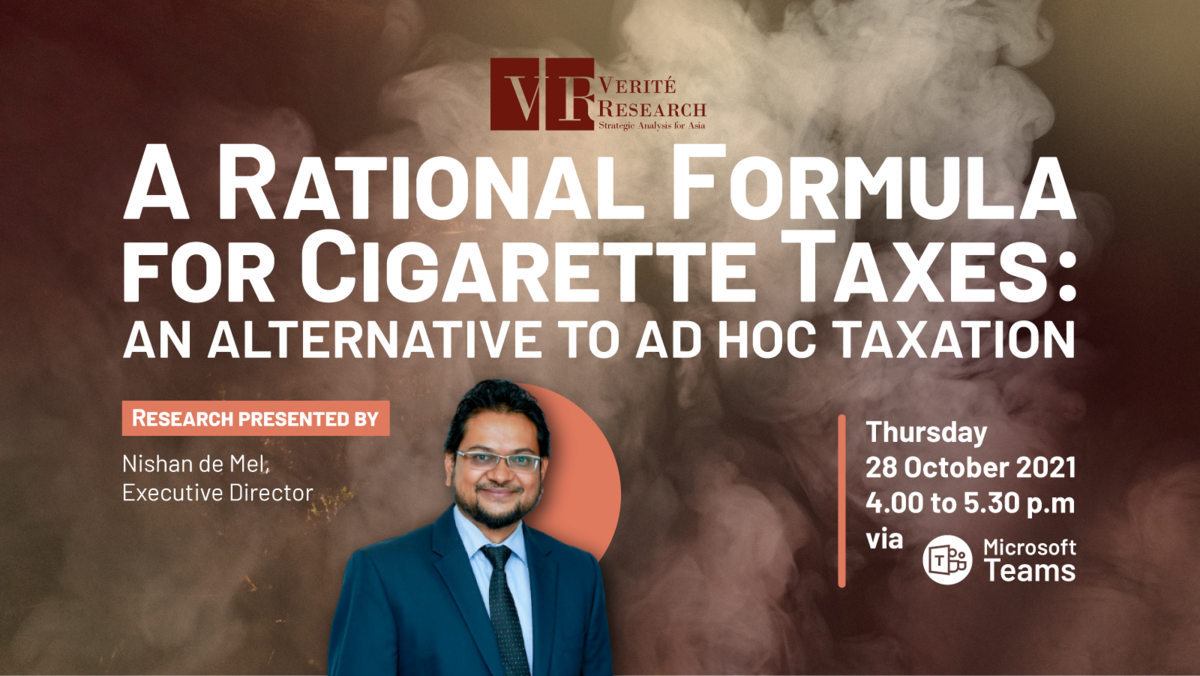Published on Ceylon Today
To reduce Cigarette consumption, while also increasing State revenue and maintaining profit for the Tobacco Company, a study by Verite Research recommends an optimal tax policy which could be indexed to inflation and real GDP growth, so that the affordability of cigarettes does not increase as incomes grow.
As per Verite Research analysis, increase in cigarette prices has not proportionately reduced consumption of the product.
At a seminar held on the research study on cigarette taxes by Verite Research, Executive Director, Dr. Nishan de Mel said price elasticity of demand (PED) for cigarettes in Sri Lanka is less than 1 (around 0.5 according to Verite Research which is far less than one). PED is the percentage change in consumption in response to a percentage change in price.
A PED less than 1 for a product means that a change in price of the product has not affected consumption of the product proportionately.
Dr. Nishan de Mel said there is a general misconception that cigarette prices are set by the Government. “The Government only sets the taxes; prices are decided by the Tobacco Company,”he said.
Over a decade, the net-of-tax price collected by CTC per cigarette stick has grown faster than the tax-in-price collected by the Government, notes the research report.
“This means that CTC’s revenue per cigarette has been growing at a higher rate than the revenue per cigarette to the Government. These are indications that taxes have been sub optimal. Also, the taxes haven’t increased in line with inflation and increase in nominal GDP.” stated
Dr. De Mel.
Thus, the study recommends an optimal tax policy that could be indexed to inflation and real GDP growth. Analysis recommends fixing 1981 as indexation base year and 75% as the tax in price.
The monopoly cigarette manufacturer in Sri Lanka has also warned of the substitution to beedi with increase in taxes.
However, a previous study by Verite Research notes that the consumption of beedi does not seem to be growing over the last 20 years, rather consumers are shifting to different brands of cigarettes.
In Sri Lanka, excise tax rates differ according to the size of the cigarette, like lower taxes for shorter length cigarettes.
Even when overall taxes for cigarettes have increased, consumption hasn’t reduced drastically, and one of the reasons is that smokers shift to shortr cigarettes or other cheaper brand of cigarettes. Thus Verite Research recommends that taxation and pricing should be proportional to the length of the cigarette.
